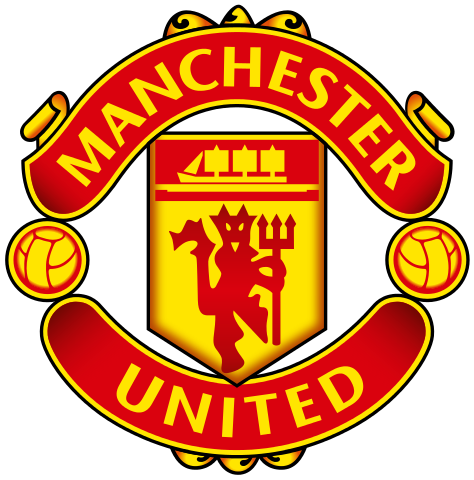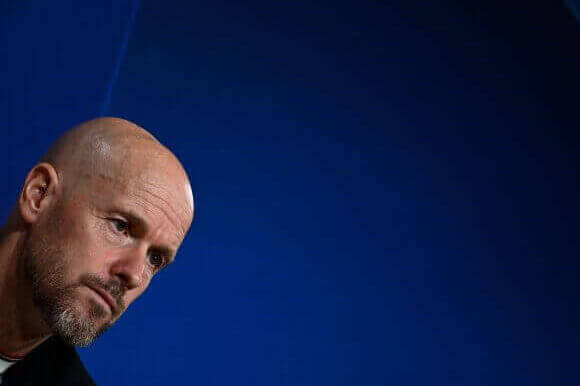Focus is falling on Erik ten Hag after Manchester United lost for the sixth time this season in a calamitous climax against Galatasaray. But the problems he is encountering are longer standing than these opening 10 games.
The issues are deep set, stemming from years of Glazer family ownership.
Their detached yet involved approach creates a workplace that is paradoxically stifled while also lacking direction. Joel Glazer is remote, living on the east coast of the United States, but wants to have oversight on all manner of financial details. United executives often have to wait for sunrise in Florida or Washington D.C., his two main bases, to get approval for things. Even then, he tends to like time to deliberate.
On the football side, that means squad regeneration is a slower process than optimum.
Ten Hag is discovering why predecessor Ole Gunnar Solskjaer came to keep hold of players rather than sanction sales. Aside from United being bad at getting good money for their unwanted players, Solskjaer was concerned those leaving would not be replaced by better ones. Solskjaer recently spoke to The Athletic about being granted three major signings per season, and former chief executive Ed Woodward expressed the view privately that it was hard to execute more. The protocol seems to have continued.
There is also a sense of mediocrity that sweeps down from the top by having an ownership disinclined to invest to provide a best-in-class stadium and training ground. Players pick up on that and standards drop, perhaps even subconsciously.
David Moyes, Louis van Gaal, Jose Mourinho, Solskjaer and even interim appointment Ralf Rangnick have done good managerial work at Old Trafford or elsewhere but all were chewed up by the malfunctioning machine that is United. Each one has since spoken about the unique complications of the structure they worked within and the people they worked for.
So to Ten Hag, and even though three transfer windows have passed under him, he has players in his squad he does not want, and by the same token there are players still at the club who would rather be elsewhere. For a manager whose style is based on discipline, which requires buy-in from players, that kind of atmosphere is especially counterproductive.
Ten Hag is intense, so too is Mitchell van der Gaag, his assistant who sets the training sessions, and that is not easy for all players. Pep Guardiola is similar. The major difference is Guardiola is winning, so most clashes shrink away. But also crucial is that his employers Manchester City act decisively on outgoings and incomings.
Ten Hag has been backed, with a net spend of around £330million ($400m) since taking charge (albeit a significant portion of that is from overpaying), and United have supported him in his disputes with Cristiano Ronaldo and Jadon Sancho. They have installed a new players’ lounge at Old Trafford for pre-match briefings.
Getting the exact type of players he wants for his system — and shaping their movements to his design — will take time, though. Currently, having Lisandro Martinez and Luke Shaw out injured, along with two other left-backs, is damaging. Stand-in Sofyan Amrabat looks like he will get exposed defensively in that position against good teams.
Of course, that does not absolve Ten Hag scrutiny. His substitutions are open to question, so too his choice in midfield with 31-year-old Casemiro showing signs of age early in his second season at the club. Andre Onana was Ten Hag’s signing this summer and has had his struggles.
United’s start to 2023-24 has been record-breakingly awful. And so, only five months after securing Champions League football against expectations, and eight months after winning the club’s first trophy in six years, Ten Hag was asked how he feels in his position as manager.
“Last season went brilliant, terrific, more than we could expect,” he said. “But also in this project we knew there would be gaps and we are in a very difficult period, but we come out together, fight together, stick together, and that is me, the directors, the team, altogether we will fight. This is not us, we know we will do better.”
It was fighting talk, as you would expect, but also centred on a truth. Football director John Murtough is deeply aligned with Ten Hag, and wants the situation to turn around as much as anybody. Murtough saw his first appointment in Rangnick go so wrong the pair barely spoke to each other, so he needs the subsequent choice of Ten Hag to work.
Then there is the fact that certain signings were bought because of Ten Hag, such as his three Ajax old boys Antony, Martinez and Onana. United had scouted these players but the manager pushed them to the top of the list.
A rinse-and-repeat cycle has led to zero genuine progress in the 10 and a half years since Sir Alex Ferguson retired as manager and there is cause to stick with Ten Hag. He is a manager with a good pedigree, is deeply invested in the club, and at age 53 has plenty of years ahead of him.
It recalls to mind Mikel Arteta’s turbulent time at the start of the 2021-22 season, when his Arsenal side lost their first three Premier League games. Arteta had been in the job since December 2019 and some Arsenal fans called for his removal. But the club kept the faith and are in a far better position now.
In that period, Arsenal director Josh Kroenke gave an interview revealing some of his thinking. He has spoken publicly since, too. At United, the manager is the only figure communicating on football matters but, given the glare that comes with a club of their scale, there are moments when it would seem sensible that others share the responsibility.
Supporters would have liked to hear from Murtough, for instance, at Ten Hag’s unveiling about why he was selected and what the club’s plans were. Some of the opprobrium at current circumstances could be offset by that added context.
Ten Hag is the lightning rod, of course. But any manager would experience difficulties at United.
It’s easy to forget that Arsenal were also in shambles not that long ago before Arteta was able to bring in more quality players he needed and also ship out several as well.
Arsenal leadership had the balls yo say, we were fucking up for too long, we will accept some pain we will stick by you Arteta, do what you need.
Erik maybe though he can rebuild the squad while continuing to fight for trophies and CL places, obviously that’s not working out and the signing of Casemiro just points to another disjointed vision, it only happened to try to rescue last season, it has no long term vision.
if we are honest, we are now kinda hoping that Saudis come in during he summer and bail us out and take Casemiro and Varane
Yep couldn’t agree more. Glazers are the problem.
The only thing I’d take issue with is how they gloss over the injury woes as if they were a side note. I think United have had something like 13 injured players to start the season (I think some of these were minor though). Any team faced with that kind of rotten luck (unless it’s a training/facilities issue) is going to struggle.
That being said, I definitely agree that the issues need to be looked at from the top. They have changed personnel multiple times and yet they still are finding similar results. The Glazers need to either get with it, or get out of the way.
Is it poor luck, or have the owners been cheaping out on physios and the med department for years?
Oh for sure. It’s definitely a big question when it just keeps happening, even if a couple of them really are due to bad luck. I think when Ronaldo came back to United he said that their training facilities hadn’t been updated since his first stint with the club.
I’m just imagining that scene from Major League where they hook up an old boat motor to their hot tubs.


